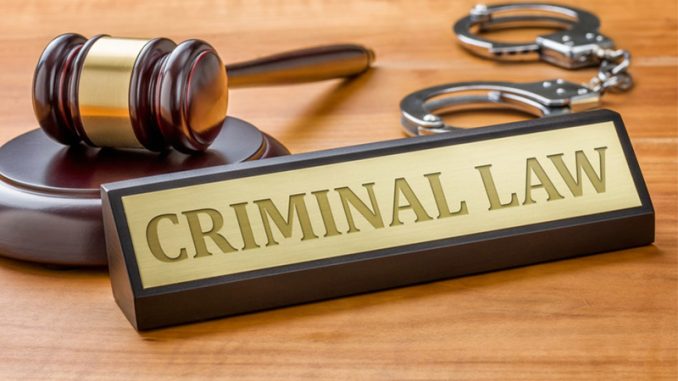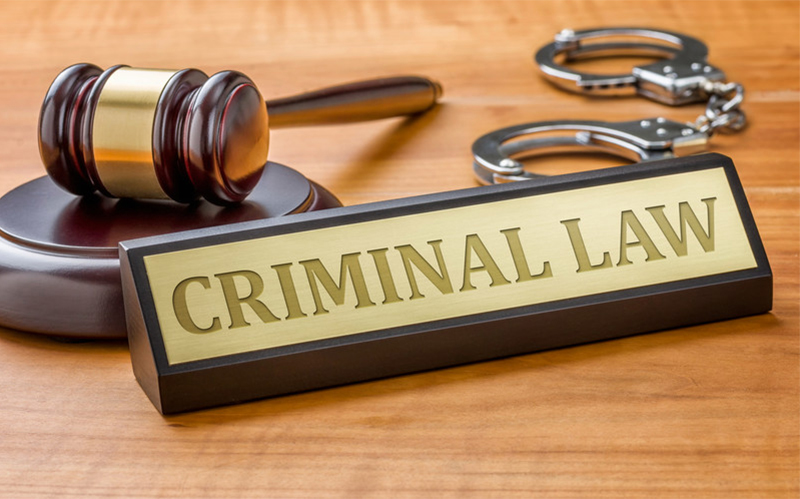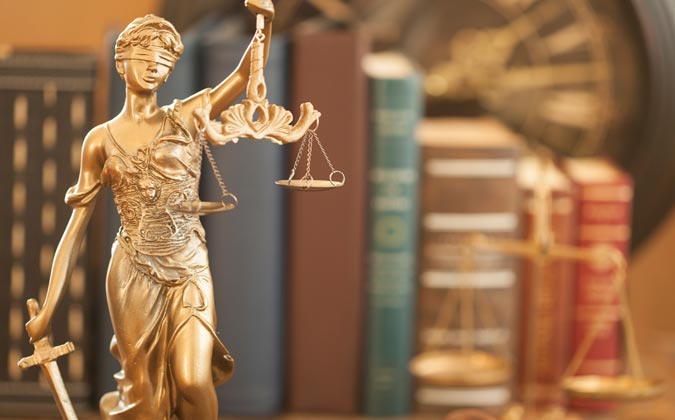
Criminal law is a cornerstone of legal systems worldwide, shaping societal norms, safeguarding individual rights, and ensuring public safety. Understanding its complexities is crucial for both legal professionals and the general public to navigate its implications effectively.
Criminal Law: Exploring the Foundations
Criminal law establishes the framework for defining and prosecuting offenses against society. Initially, it delineates the elements of criminal conduct, specifying what constitutes a crime and the requisite mental state for liability.
Defining Criminal Offenses
Criminal offenses encompass a broad spectrum of conduct, ranging from violent crimes such as murder and assault to non-violent offenses like theft and fraud. Moreover, they are categorized based on severity, with felonies carrying harsher penalties than misdemeanors.
Principles of Criminal Liability
Principles such as actus reus (guilty act) and mens rea (guilty mind) form the basis of criminal liability, requiring both a wrongful act and the intent or knowledge to commit the offense. Consequently, individuals can only be held criminally responsible if these elements are present.
The Role of Criminal Law in Society
Criminal law serves multiple functions within society, including deterrence, punishment, rehabilitation, and societal protection. Furthermore, it upholds fundamental principles of justice and fairness, ensuring that individuals are held accountable for their actions while preserving their rights.

Deterrence and Prevention of Crime
One of the primary aims of criminal law is to deter individuals from engaging in unlawful behavior by imposing penalties for violations. Subsequently, the threat of punishment acts as a deterrent, discouraging potential offenders from committing crimes.
Rehabilitation and Reintegration
In addition to punishment, criminal law aims to rehabilitate offenders and facilitate their reintegration into society. Rather than solely focusing on punishment, rehabilitative measures such as counseling, education, and vocational training address underlying issues contributing to criminal behavior.
Legal Procedures and Protections in Criminal Cases
Criminal proceedings are governed by a set of legal procedures and protections designed to safeguard the rights of the accused and ensure a fair trial. Conversely, these include the presumption of innocence, the right to legal representation, and the prohibition of coerced confessions.
Due Process and Fair Trial Rights
Due process guarantees the accused the right to a fair and impartial trial, including the right to confront witnesses, present evidence, and appeal convictions. Similarly, fair trial rights protect against arbitrary arrest, unlawful searches, and coerced confessions, safeguarding individual liberties.
Role of Legal Counsel in Criminal Defense
Legal counsel plays a crucial role in criminal defense, advocating for the rights and interests of the accused throughout the legal process. Additionally, defense attorneys provide legal guidance, investigate evidence, and challenge the prosecution’s case to secure favorable outcomes for their clients.
Unveiling Key Legal Concepts in Criminal Law
Analyzing Legal Precedents and Case Law
Examining legal precedents and case law provides valuable insights into how courts interpret and apply criminal statutes. Additionally, it offers guidance for legal practitioners in building persuasive arguments and anticipating judicial decisions.
Understanding Mens Rea and Actus Reus
Delving into the concepts of mens rea (guilty mind) and actus reus (guilty act) elucidates the mental state and physical conduct required to establish criminal liability. Similarly, it highlights the nuanced elements that prosecutors must prove beyond a reasonable doubt in criminal cases.
Exploring Criminal Offenses and Penalties
Differentiating Between Misdemeanors and Felonies
Differentiating between misdemeanors and felonies involves assessing the severity of the offense and the corresponding penalties under criminal law. Furthermore, it informs legal strategies for defense attorneys and prosecutors based on the gravity of the charges.
Examining Sentencing Guidelines and Discretion
Analyzing sentencing guidelines and judicial discretion sheds light on the factors considered in determining appropriate penalties for convicted individuals. Consequently, it underscores the importance of advocacy and mitigation efforts during sentencing proceedings.
Safeguarding Constitutional Rights in Criminal Proceedings
Protecting Against Unlawful Searches and Seizures
Safeguarding against unlawful searches and seizures safeguards individuals‘ Fourth Amendment rights against unreasonable government intrusion. Moreover, it underscores the role of defense attorneys in challenging evidence obtained through unconstitutional means.
Ensuring the Right to Legal Representation
Ensuring the right to legal representation guarantees defendants’ Sixth Amendment right to counsel and a fair trial. Likewise, it emphasizes the critical role of defense attorneys in advocating for defendants’ rights and challenging the prosecution’s case.
Advancing Fairness and Justice in Criminal Law
Promoting Restorative Justice Practices
Promoting restorative justice practices emphasizes accountability, rehabilitation, and reconciliation between offenders and victims. Similarly, it offers alternative approaches to traditional punitive measures, focusing on repairing harm and fostering community healing.

Enhancing Access to Legal Resources and Education
Enhancing access to legal resources and education empowers individuals to navigate the complexities of the criminal justice system effectively. In addition, it promotes transparency, accountability, and fairness in legal proceedings, regardless of socioeconomic status.
Empowering Individuals Through Legal Knowledge
In conclusion, unraveling the intricacies of criminal law is essential for ensuring justice, protecting constitutional rights, and promoting fairness in legal proceedings. Therefore, by understanding key legal concepts, advocating for constitutional protections, and advancing restorative justice practices, we can foster a more equitable and just society for all.
Unpacking Legal Definitions and Elements
Unpacking legal definitions and elements involves dissecting the components of criminal offenses to understand their scope and application. Additionally, it aids in clarifying the threshold for criminal liability and guiding legal strategies for both prosecution and defense.
Evaluating Criminal Intent and Culpability
Evaluating criminal intent and culpability involves assessing the mental state and moral responsibility of individuals accused of committing crimes. Nevertheless, determining the degree of intent can significantly impact the outcome of criminal cases and the severity of penalties imposed
Conclusion: Navigating the Complexities of Criminal Law
In conclusion, criminal law is a multifaceted legal domain with far-reaching implications for individuals, communities, and society as a whole. Accordingly, by understanding its foundations, functions, and legal procedures, individuals can navigate its complexities effectively and uphold principles of justice and accountability in their interactions with the legal system. Through education, advocacy, and adherence to legal principles, we can strive for a fair and just society where the rule of law prevails.
Leave a Reply
You must be logged in to post a comment.